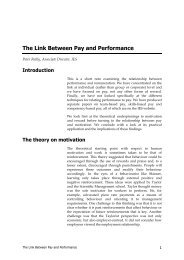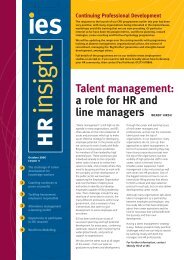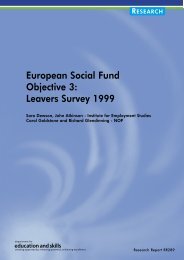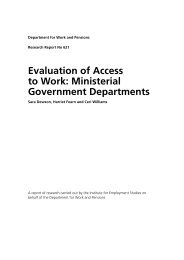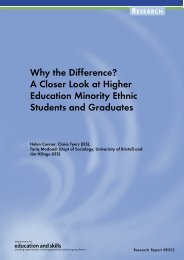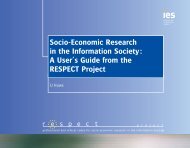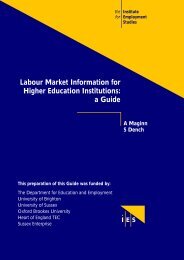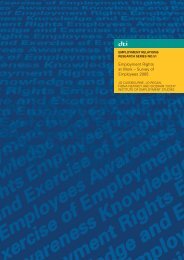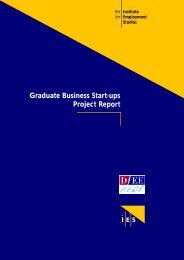Post-16 Transitions: a Longitudinal Study of Young People with ...
Post-16 Transitions: a Longitudinal Study of Young People with ...
Post-16 Transitions: a Longitudinal Study of Young People with ...
Create successful ePaper yourself
Turn your PDF publications into a flip-book with our unique Google optimized e-Paper software.
Parents and carers as sources <strong>of</strong> support<br />
Devesh’s family is committed to supporting his transition. He is<br />
the young man <strong>with</strong> hydrocephalus-associated learning<br />
difficulties who has embarked on a college course <strong>with</strong>out, it<br />
would appear, adequate support. The importance <strong>of</strong> his parents’<br />
support and high ambitions for their son is obvious:<br />
“We made him to feel that it is important for his life to do — achieve<br />
something and he decided to do that but it was entirely up to him what<br />
he wants to do... He wanted to do the cleaning job for people in school, he<br />
decided to do that but then we persuaded him to go on to course. In the<br />
end, the teacher and us parents, we advise him and then he started this<br />
course which he wanted to do so we said alright, whatever but do<br />
something.”<br />
Not surprisingly, his parents are deeply worried by the difficulties<br />
he is now experiencing, but their own account is that they have<br />
been unable to get any help from the college. Again, there are no<br />
doubt two sides to this story. The point, however, is that the<br />
undoubted commitment <strong>of</strong> these parents towards their son is not<br />
being harnessed effectively.<br />
Chapter Seven: Outcomes<br />
Carl, whose severe autism was for a time associated <strong>with</strong> such<br />
challenging behaviour that his special school was on the points <strong>of</strong><br />
excluding him. His support worker describes what he has gained<br />
in recent years from school in the following terms:<br />
“What has he gained from school? I would think he has gained control,<br />
self-control, I’d say self control. I’m talking about behaviour, self control<br />
over his own social behaviour because these are big issues aren’t they?<br />
They are for him and I think he has gained friendship, stability and<br />
continuity…Yes, he has socially progressed a hell <strong>of</strong> a lot and a lot <strong>of</strong> that<br />
is because he is so much calmer now, he is so much more settled.”<br />
For young people who are troubled or have intellectual<br />
impairments, the emphasis on personal and social outcomes is<br />
particularly great. Marcus’s mother, for instance, wryly comments<br />
that although his school has awarded him a certificate for his<br />
curricular achievements, it means nothing to him:<br />
“His bestest things in the world are bumpy rides and trees.”<br />
Even for young people who come close to success <strong>of</strong> some sort,<br />
there are usually significant difficulties. Joshua, for instance, is<br />
highly committed to his Intermediate GNVQ work at a sixth form<br />
college and has already achieved a pass in Business Studies. His<br />
tutor describes him in the following terms:<br />
“I would say that he absolutely loves studying and I think that he is one<br />
<strong>of</strong> those rare students in a way…he fits right in and he just wants to be<br />
<strong>16</strong>4<br />
<strong>Post</strong>-<strong>16</strong> <strong>Transitions</strong> <strong>of</strong> <strong>Young</strong> <strong>People</strong> <strong>with</strong> SEN: Wave 2



